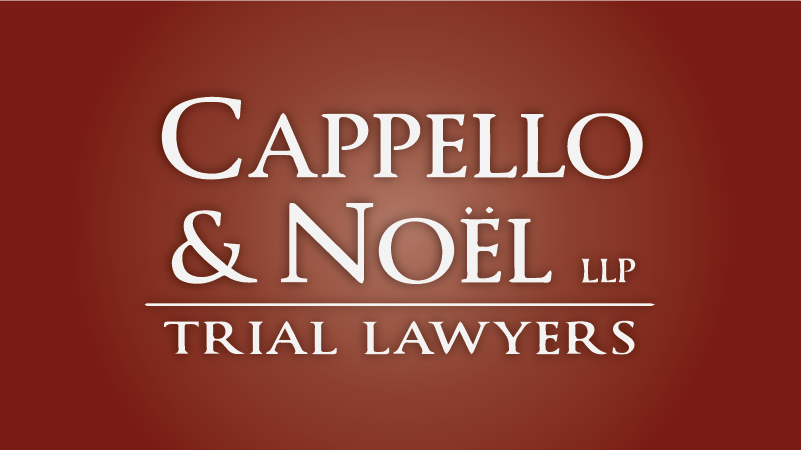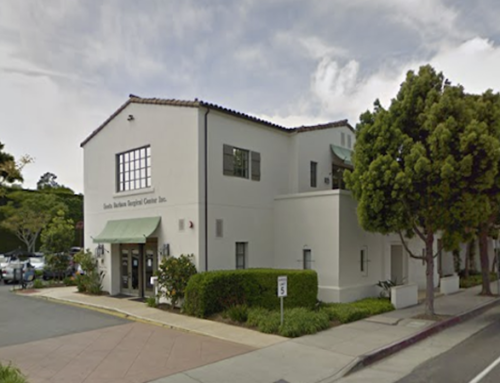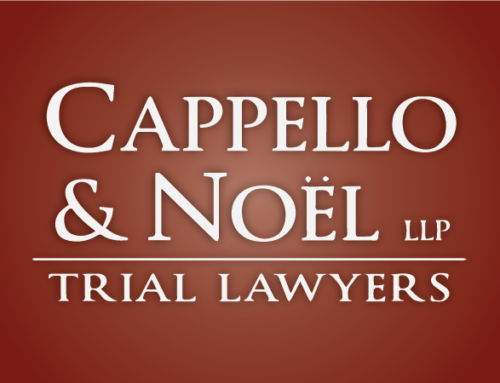Excerpted from Los Angeles Daily Journal Case in Focus
Read “Litigators’ Strategy Successful Appeal Opened the Way for Punitives” below
Type: Employment law, wrongful termination, slander
Verdict: $23.1 million
Case/Number: Nabil Darghous v. Johnson Controls Inc./ BC134624
Court/Date: L.A. Superior Central West/August 28
Judge: F. Ray Bennett, Dept. 308
Disbursement: $4.4 million (retaliation, wrongful termination, breach of contract and covenant of good faith); $.5 million (slander); $1.2 million (prejudgment interest); $17 million (punitive).
Facts: Plaintiff Nabil Darghous was employed as a high level manager and had been with defendant Johnson Controls for 18 years. The plaintiff alleged that he became aware of or observed conduct that he believed was illegal. He reported this to defendant’s officials and was allegedly told to mind his own business or to stop badmouthing his superiors. Some time later, when he was working in the defendant’s Los Angeles branch, he again alleged knowledge of unethical and potentially illegal conduct by personnel, including alleged price fixing on contract bids, kickbacks and hiring of prostitutes involving overseas projects and sexual harassment problems. After reporting these suspicions in a letter to JCI officials, he was placed on paid leave and subsequently terminated in September 1994. The plaintiff further alleged that his repeated requests for assistance to resolve problems with his supervisor went unanswered. The plaintiff brought this wrongful termination action against the defendant based on wrongful termination in violation of public policy, breach of contract, breach of the covenant of good faith and fair dealing, slander and retaliation theories of recovery.
Contentions: The plaintiff contended that he was retaliated against, wrongfully terminated and slandered by JCI in response to his reports of alleged unethical and illegal conduct on the part of JCI. The defendant contended that the letter sent by plaintiff’s former counsel reporting JCI’s wrongful conduct and seeking assistance in plaintiff’s relationship with his superior amounted to an extortion demand.
Damages: The plaintiff claimed $5.6 million for lost wages, pension benefits and stock options.
Jury trial: Length, 31 days; poll, 9-3 (liability on wrongful termination, retaliation and breach of contract), 11-1 (slander), 10-2 (oppression, fraud and malice), 12-0 (breach of covenant of good faith and compensatory damages, 9-3 (punitive damages); deliberation, 10 days.
Settlement discussions: The defendant initially offered $20,000 but later withdrew it.
Post-trial motions: Per plaintiff, the defendant intends to file post-trial motions and to appeal.
Other information: The verdict was reached approximately three years after the case was filed. The trial court granted the bulk of defendants’ summary judgment motion in the summer of 1996. The Court of Appeal subsequently reversed the trial court and reinstated plaintiff’s claim for wrongful termination, retaliation and slander, following a petition for a peremptory writ filed by plaintiff’s counsel. According to plaintiff, a critical piece of evidence at trial was a hand-written internal memo from April 1993, in which his immediate boss had written that he decided to get rid of Darghous and create a paper trail to support the firing.
| Successful Appeal Opened the Way for Punitives |
Excerpted from Los Angeles Daily Journal
I took it up to the Court of Appeal on an extraordinary writ. They granted the writ, which is a very rare thing and ordered full briefing. I argued it, they reversed the trial court, [and] back came all the causes of action. This case is on its second life here. – LEILA J . NOËL
According to plaintiff’s counsel Leila J. Noël, this week’s Case in Focus was appreciating its second life when the jury came back with a $23 million verdict on behalf of the plaintiff in August. Plaintiff Nabil Darghous had worked for defendant Johnson Controls, Inc. for 18 years when he was fired in September 1994. The plaintiff claimed that he was wrongfully terminated for reporting unethical and potentially illegal conduct by company personnel to Johnson Controls officials. According to Noël, the trial was scheduled for October 1996 and Johnson Controls filed summary judgment motions before that time, and the whole case was thrown out by the trial judge except for two causes of action breach of contract and breach of the covenant of good faith and fair dealing. [Those], by far, were not our stronger causes of action, says Noël. It would have left us with no punitive damages….Frankly, I felt the judge was in error in his ruling, and that is why I made so many reconsideration motions, and he wouldn’t grant any of them. So I took it up to the Court of Appeal on an extraordinary writ. They granted the writ, which is a very rare thing and ordered full briefing. I argued it, they reversed the trial court,[and] back came all the causes of action. This case is on its second life here.
What types of things did the plaintiff allege?
Noël: There was an issue back in the time frame when he worked in Saudi Arabia, and that was when the Arab boycott of Israel was going on and [the plaintiff’s] immediate superior, Ron Williams, was going to meet with the head of the Arab boycott committee, which was contrary to U.S. law at the time. That was at a time when it was illegal for any U.S. company to do business with Saudi Arabia. They had boycotted Israel and, given the U.S. ties to Israel, it was illegal to do business with any of the countries that had blacklisted the state of Israel. Johnson Controls, being a U.S. company, was on that list, and they were trying to get around it so they could get lucrative contracts in the Middle East.
Prior to May 1994, did Darghous have any problems? Anything written up in his employee file?
Noël: No. In fact, there was testimony that he was someone they could put anywhere. He could go into a terrible financial situation and get the whole thing set right and turn it into a profitable operation again.
The plaintiff claimed that they tried to justify his dismissal by accusing him of sexual harassment and blackmail.
Noël: Yes, they did. The jury was unanimous on slander. The jurors I have spoken with said the two women Johnson put on the stand accusing him of harassment were just not believable. The fact that Johnson had conducted investigations in the past and found that it didn’t happen, the jury essentially saw through it. They saw what Johnson was doing, which was since they were charged with slander in this case, the way to get around slandering Darghous as a sexual harasser, is to use truth as a defense and try to prove that he did [commit sexual harassment]. That was the reason they did the 180 degree about face. It was purely to protect their own interest.
What evidence did you present in trial to support the plaintiff’s allegations of wrongdoing on the part of the defendant company?
Noël: The case focused around the allegations made in the May 4, 1994 letter that he sent the reporting letter that he got fired for sending. Now, Darghous was on the stand for a long time more on cross than on direct, and we had him testify as to the basis of his knowledge of the central allegations in the letter. How do you know about this? How do you know it happened? What is your basis for saying it? And in some cases, like some of the things that went on in Saudi Arabia, it was the people doing it who came to him and [were] bragging about it. And where we had other witnesses who corroborated that, we had them on the stand as well.
To satisfy your burden in the case?
Noël: All we had to prove to the jury is that Darghous had a reasonable, good-faith belief that these events occurred. Not that they did occur, but that he had a reasonable good faith belief that they did and that is why he recorded them.
So the other side would then try to prove his belief was unreasonable, i.e., if you only hear his side of the story, sure it sounds reasonable, but let us present our side.
Noël: And they did. Let me give an example. One thing they did is they brought a man to the stand, Ron Williams, who was Darghous boss in Italy and in a disjointed way, [his boss] in Saudi Arabia. They put him on the stand and said, Now Mr. Darghous has testified about these trips to Saudi Arabia and did all that happen? He kind of laughed it off and said, that’s not what happened. I did go to Saudi Arabia, but I was sent at the behest of a government agency who has three initials, but I can’t tell you the three initials. But you all know them! The CIA is supposed to have sent him to Saudi Arabia to do business for the government, and the way they were going to prove this was a legal, authorized trip was that he even got a commendation medal from the CIA, years and years later. Well, it turns out [Williams] son works for the CIA, and frankly, it didn’t look much like a medal. You know, they put it into evidence, and the jury looked at it, but I don’t think the jury believed this guy. So, in response to your question, they did try to counter Darghous version of what happened either it didn’t happen, or it did, but this is why it happened and there is nothing wrong with it. But they didn’t focus enough on if it did, if fact, impact Darghous having the reasonable good faith belief that he had. They had to do something to make it sound like he was intentionally reporting a lie.
One of the factors you labeled as key to the case was an internal memo by Krueger.
Noël: The interesting thing is because they knew the document was so damaging, in opening statement their attorney basically said, You know, you should admire Mr. Krueger and his honesty because this document could have found its way into the circular files. [This] was a shocking statement. Basically they are saying, Gee, aren’t you glad that he is such an honest man that he didn’t destroy evidence.
Johnson Controls knew you had the memo and knew that the plaintiff had a good history with the company. Did this lead to any settlement discussions?
Noël: There were no settlement discussions. At one point, they offered $20,000 to settle the case. Just to make sure that we knew how resolute they were in the fact that they were not going to settle this case before trial, when they filed their trial brief, they made a big point in the brief that the $20,000 settlement was no longer on the table.
What has been the effect of this case on Darghous’ career?
Noël: He has had massive problems. Along with the wrongful termination, there was the slander aspect of it, and what happened with that after he was put on paid leave. Tom Kruger came in, met with all of the management team, and said that Darghous was no longer with the company because he had sent an extortionist letter. With that alone, your reputation is virtually gone. It got through the industry, and it became almost commonplace knowledge. There were rumors floating that he had cooked the books, [he had] sexually harassed, sent an extorting letter to the company, and was a poor performer, none of which is true. He did manage to get another job from which he was later laid off. I think it was a little unclear whether he was really laid off for financial reasons in that company or whether [the company] had gotten wind of the slander. The bottom line is that he was not able to get a job in the controls industry at all. He tried. He had a headhunter. They sent out hundreds of resumes. He could not get a job. He ended up getting a job out of the industry at way less than half the money he was making before. He lost his stock options. He lost his pension plan. He lost everything. He had 18 years with this company and lost everything.






